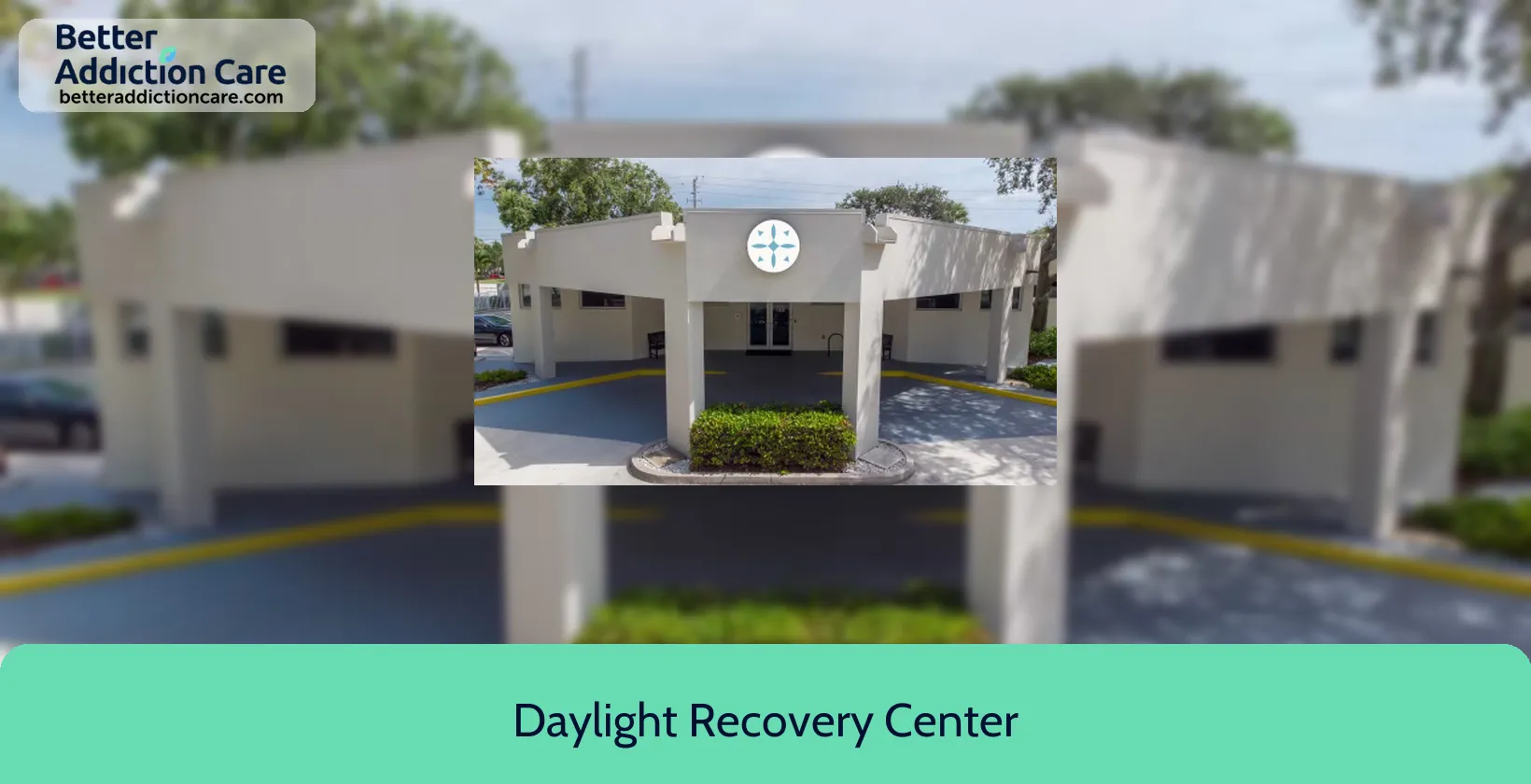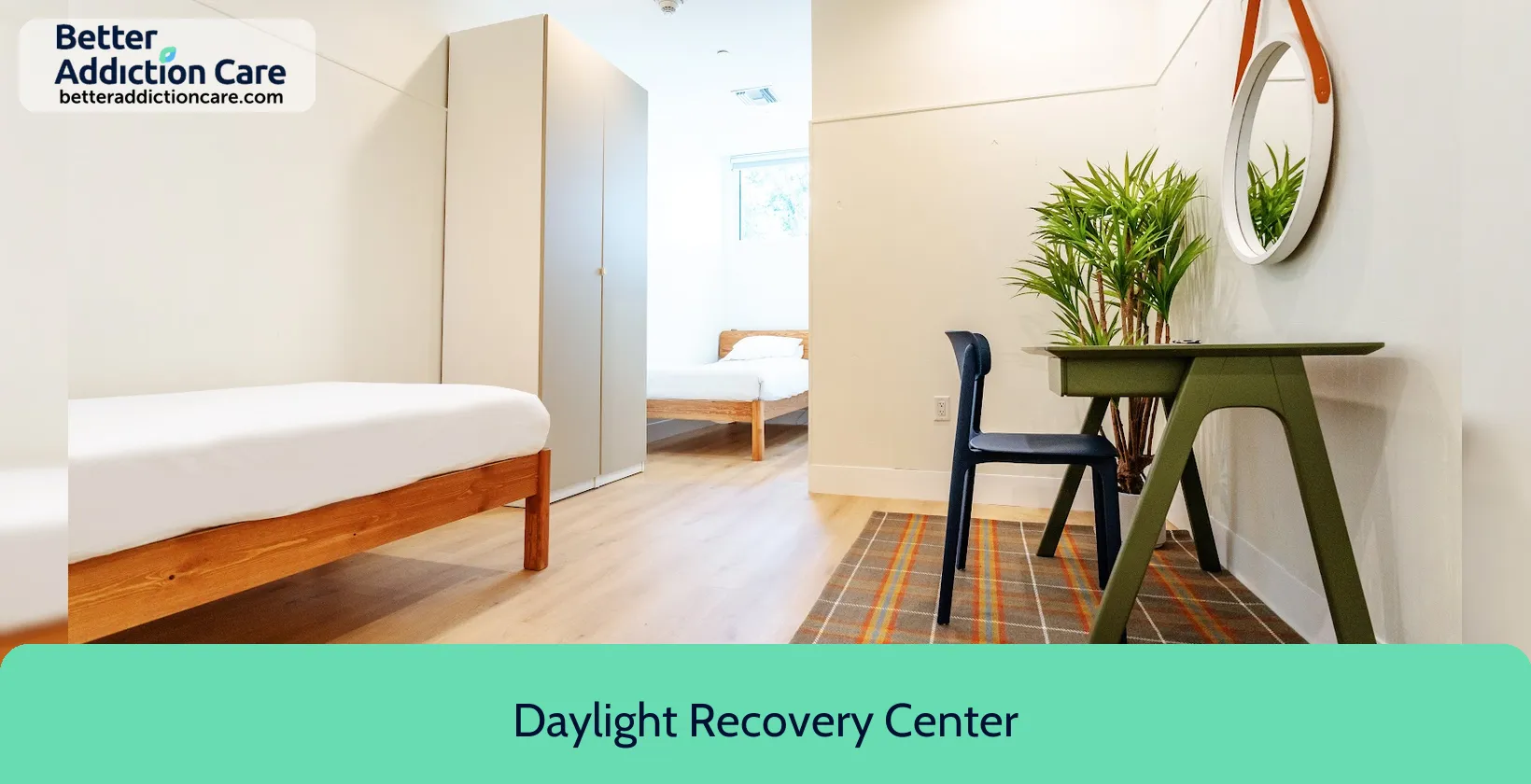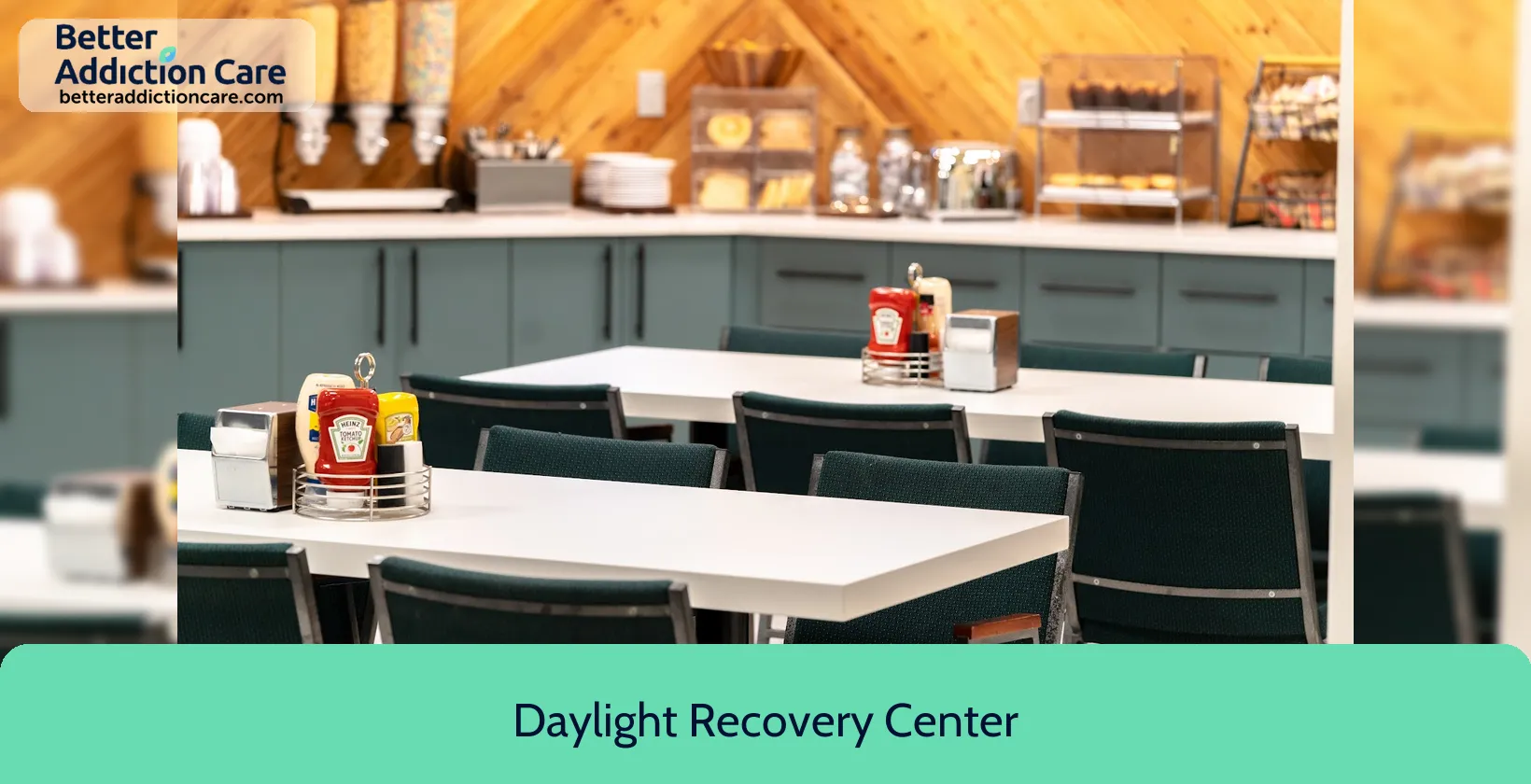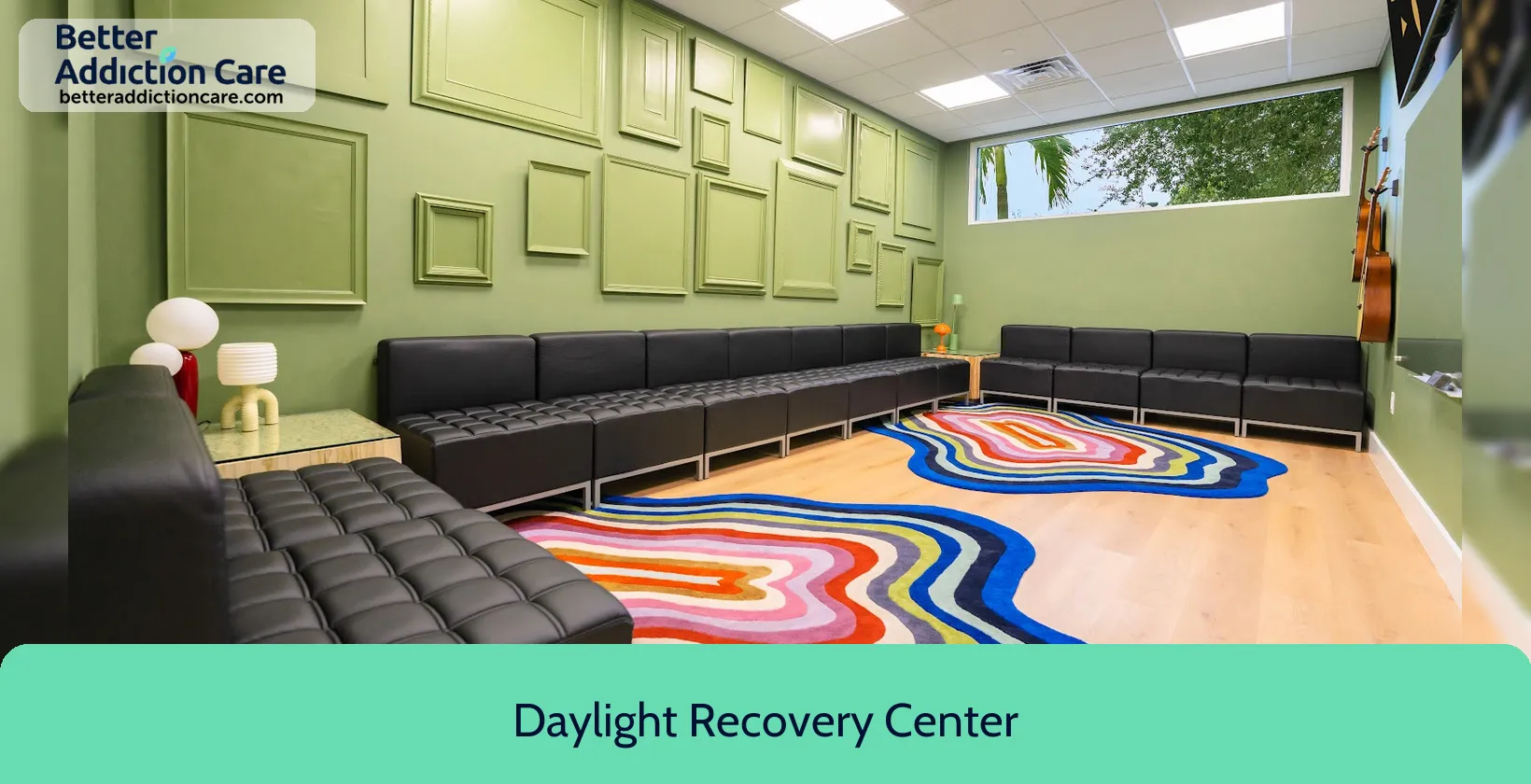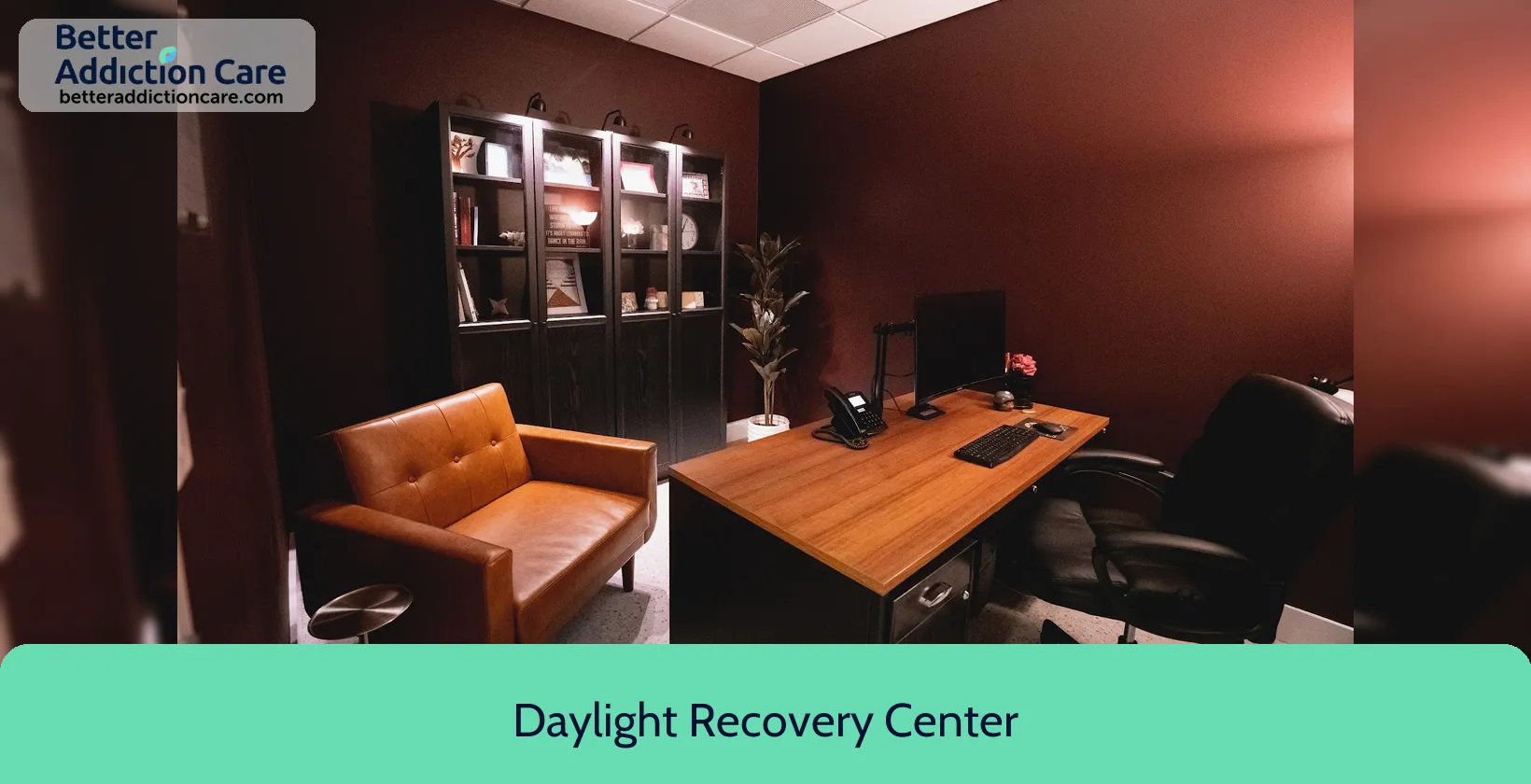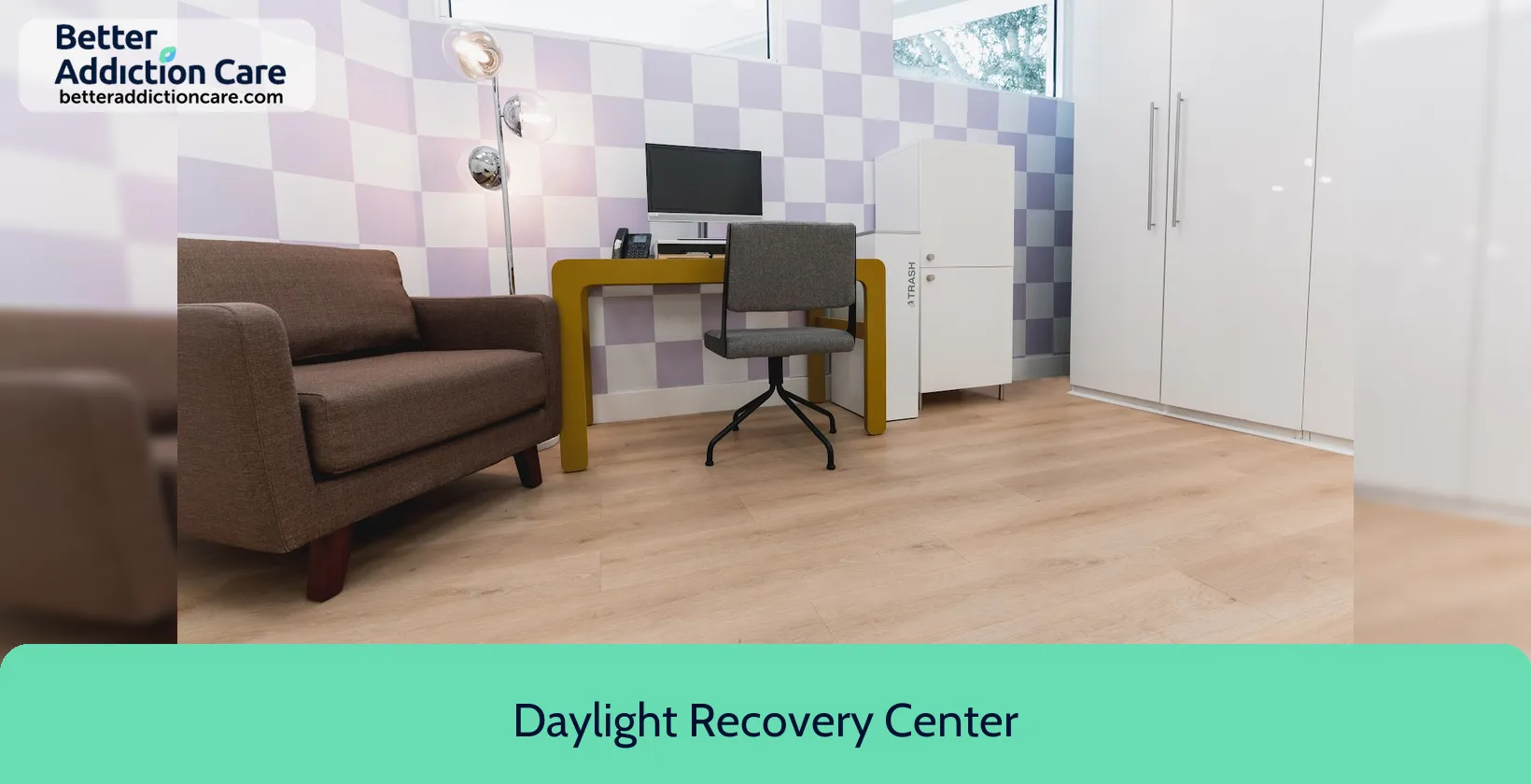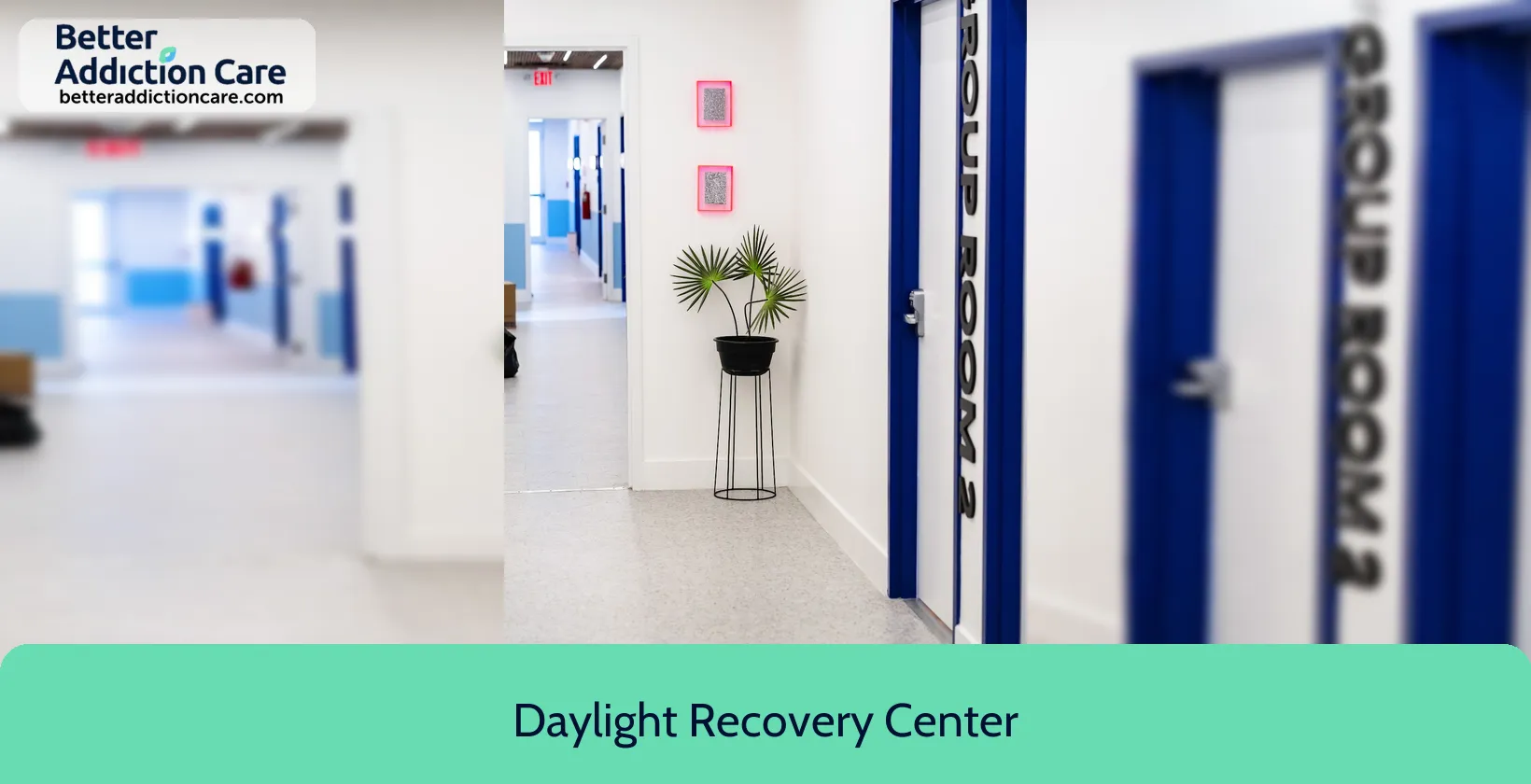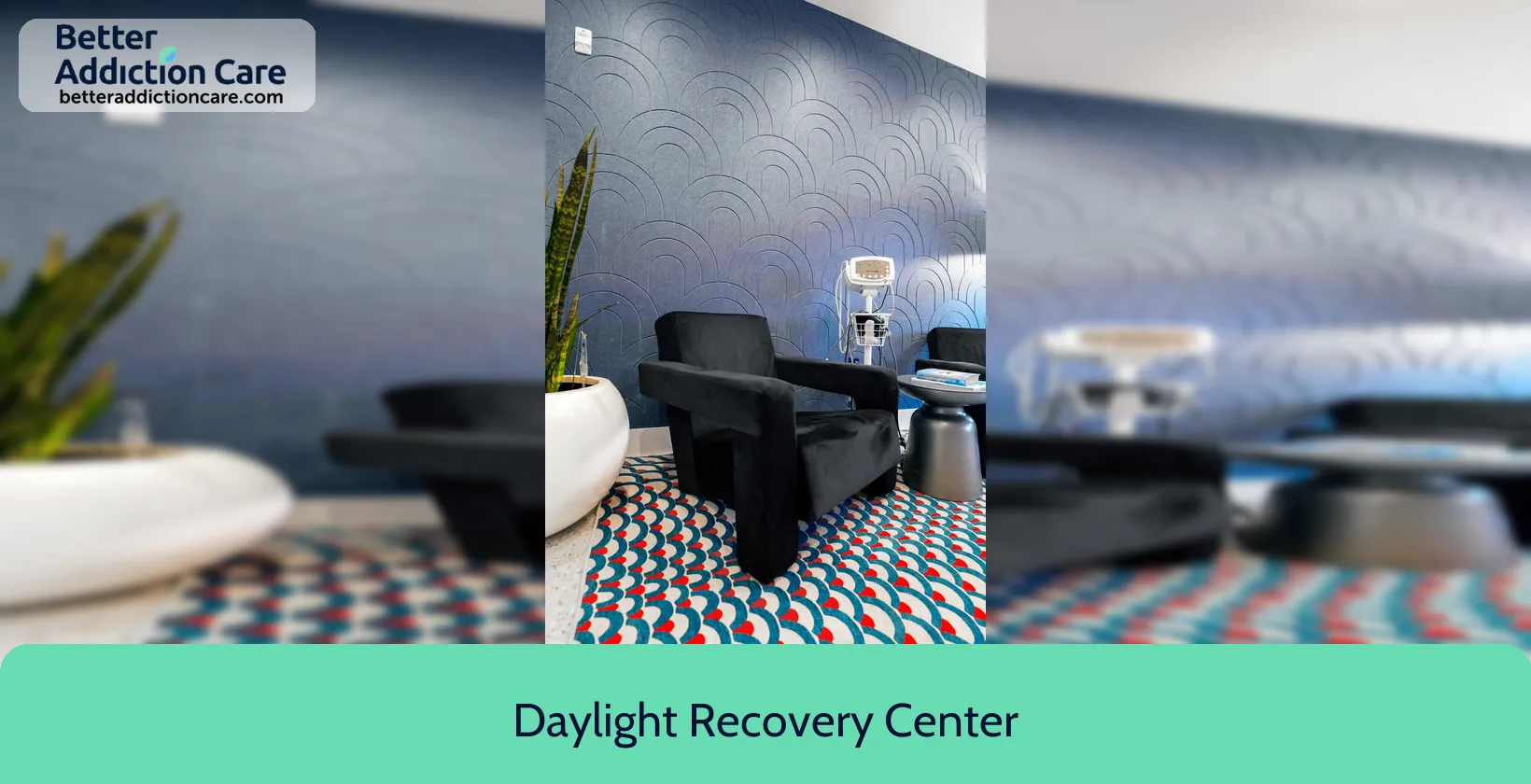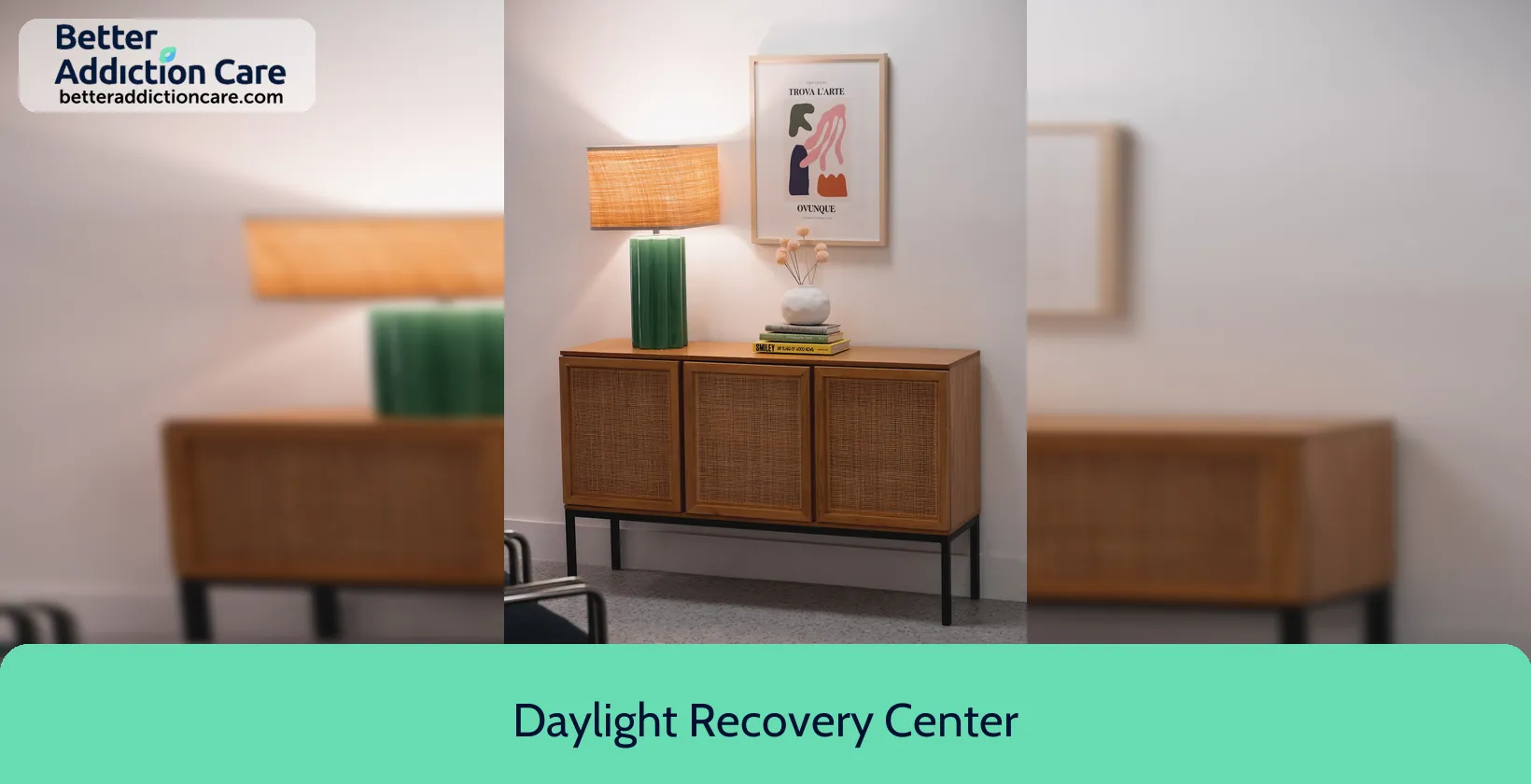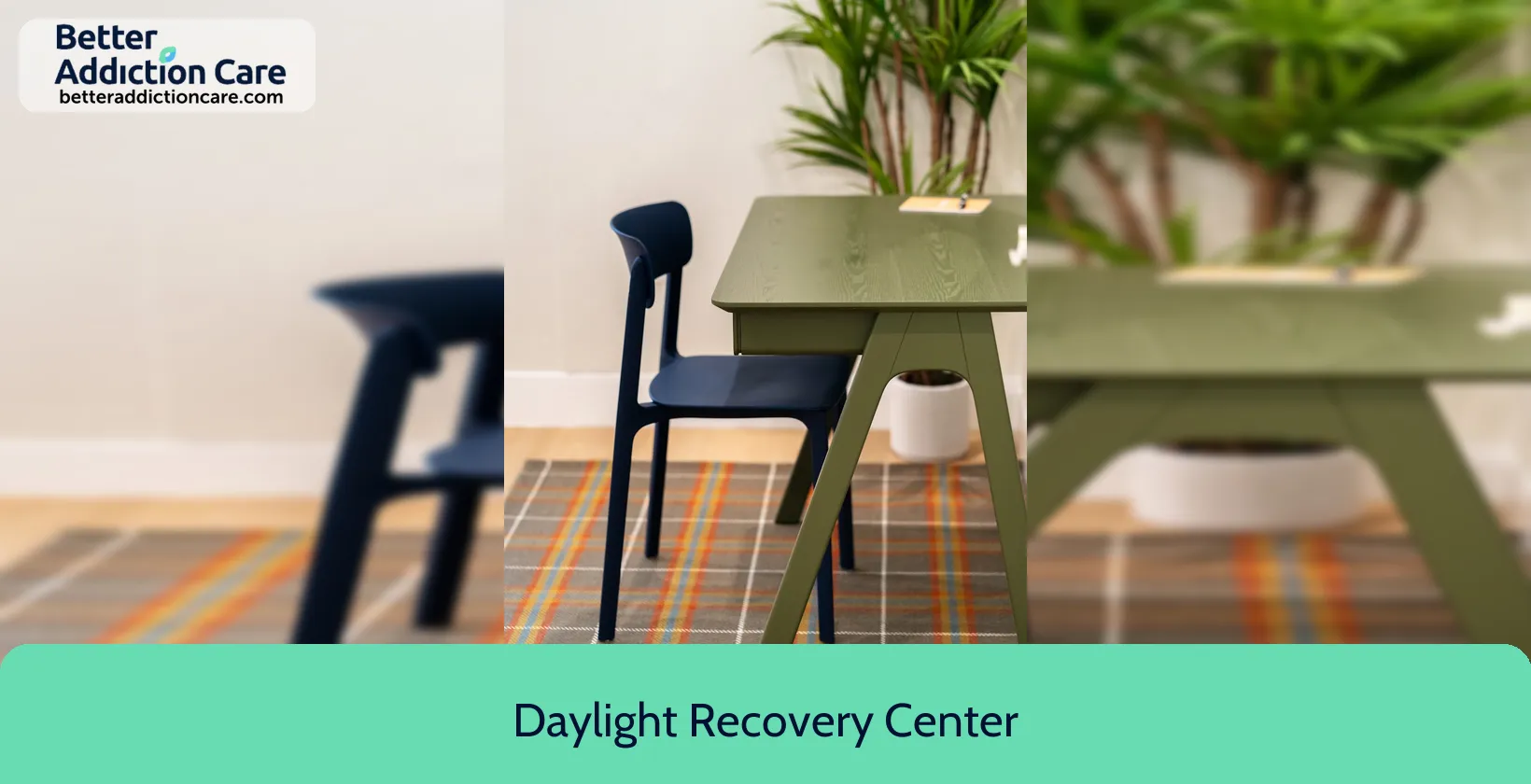Daylight Recovery Center
Overview
Daylight Recovery Center is an accredited substance abuse treatment center that provides inpatient treatment for men and women between 18 and 65+ years of age. As part of their special programs, Daylight Recovery Center To help patients achieve sobriety, Daylight Recovery Center provides intake assessments. Afterward, patients receive group counseling, family counseling, and marital/couples counseling during treatment. Daylight Recovery Center is located in West Palm Beach, Florida, providing treatment for people in Palm Beach County, accepting cash or self-payment.
Daylight Recovery Center at a Glance
Payment Options
- Cash or self-payment
Assessments
- Comprehensive mental health assessment
- Comprehensive substance use assessment
Age Groups
- Adults
- Seniors
- Young adults
Operation
- Private for-profit organization
Highlights About Daylight Recovery Center
6.62/10
With an overall rating of 6.62/10, this facility has following balanced range of services. Alcohol Rehabilitation: 8.00/10, Drug Rehab and Detox: 6.00/10, Insurance and Payments: 6.00/10, Treatment Options: 6.49/10.-
Alcohol Rehabilitation 8.00
-
Treatment Options 6.49
-
Drug Rehab and Detox 6.00
-
Insurance and Payments 6.00
Accreditations
The Joint Commission:

The Joint Commission's addiction and behavioral health accreditation signifies a facility's commitment to high-quality care. It involves rigorous evaluations and assessments of clinical practices, ensuring effective, evidence-based treatment. Accreditation showcases a dedication to continuous improvement and patient safety, instilling trust among patients, families, and healthcare professionals. It's a mark of excellence in addiction and behavioral health care.
LegitScript:

Only programs and services that have successfully completed a rigorous application process initiated in 2018 can attain LegitScript certification. This stringent evaluation guarantees that only reputable mental health and co-occurring substance abuse treatment providers are eligible to be part of Google's network, ensuring compliance with HIPAA privacy laws.
Treatment At Daylight Recovery Center
Treatment Conditions
- Mental health treatment
- Substance use treatment
- Co-occurring Disorders
Care Levels
- Aftercare
- Hospital inpatient treatment
Treatment Modalities
- Group counseling
- Family counseling
- Marital/couples counseling
- 12-step facilitation
- Holistic Treatment
Get Help Now
Common Questions About Daylight Recovery Center
Contact Information
Other Facilities in West Palm Beach
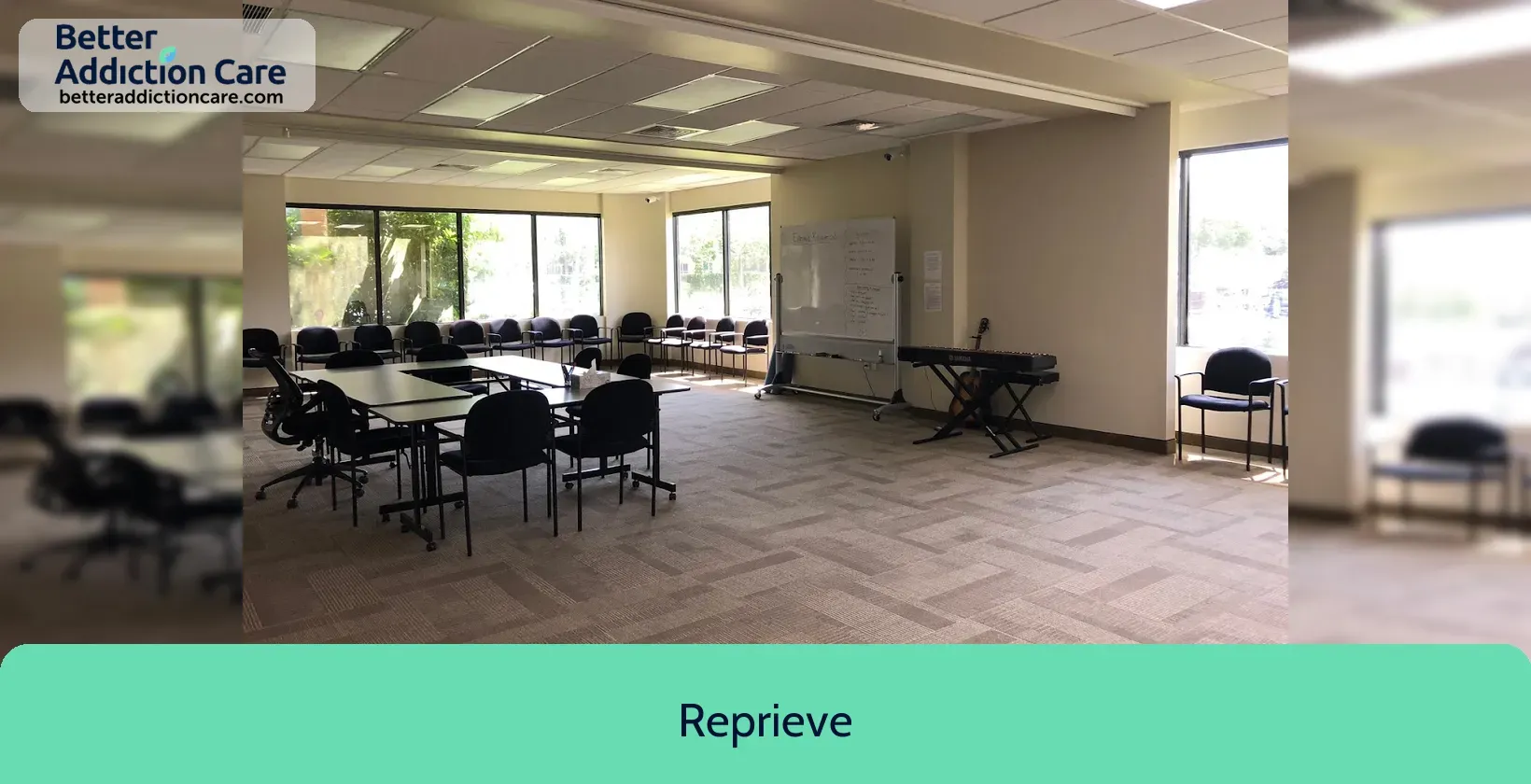
7.08
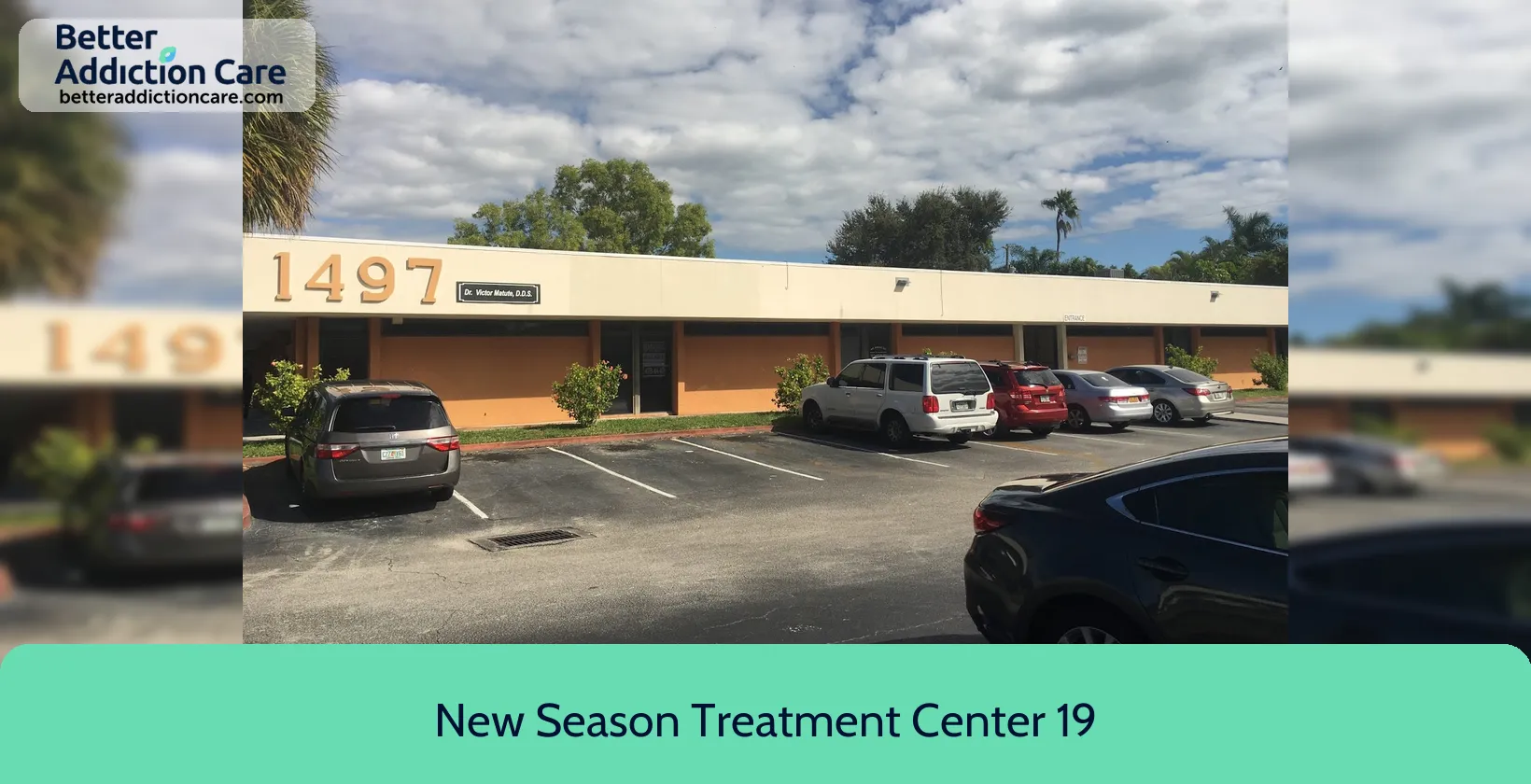
7.39
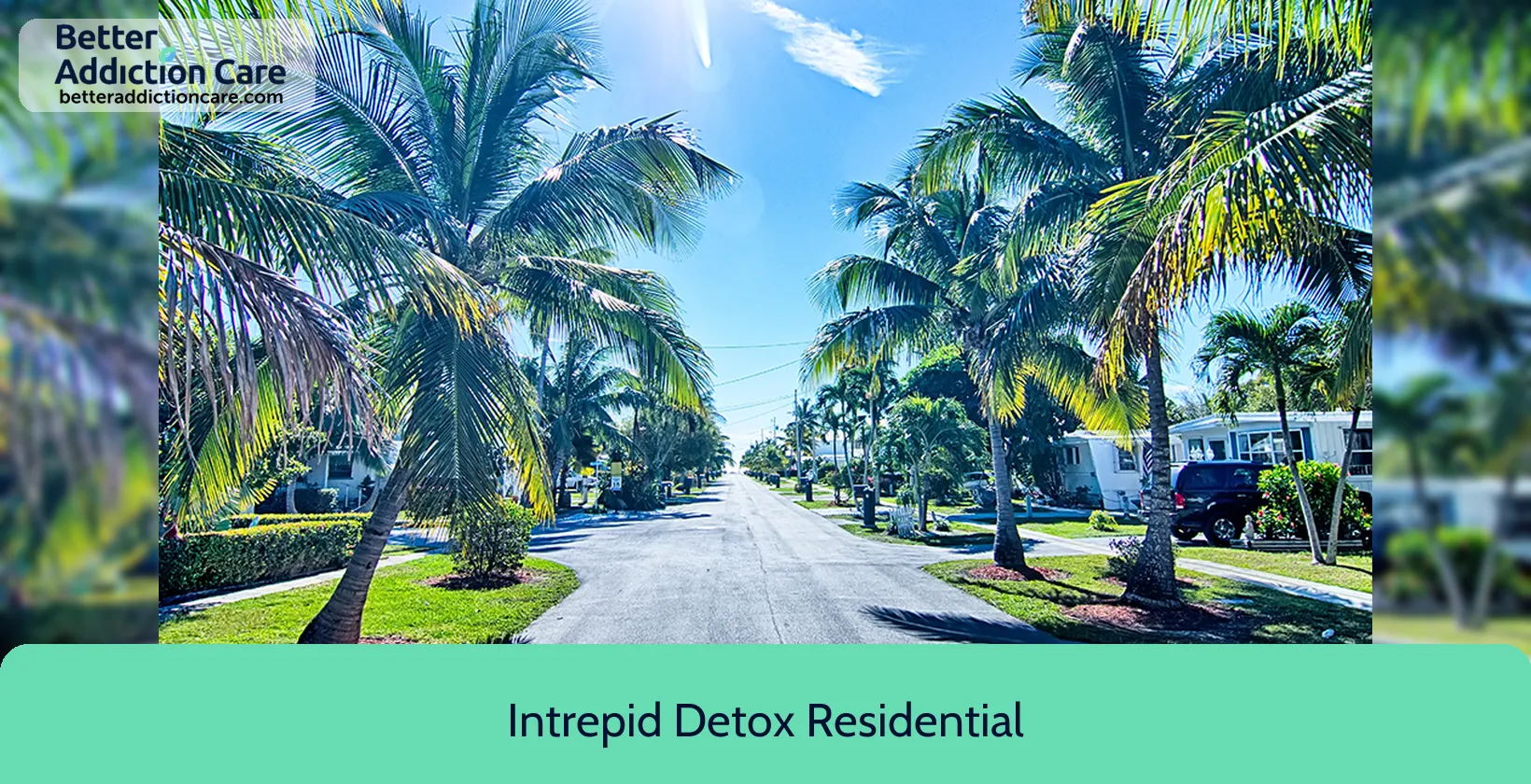
7.48
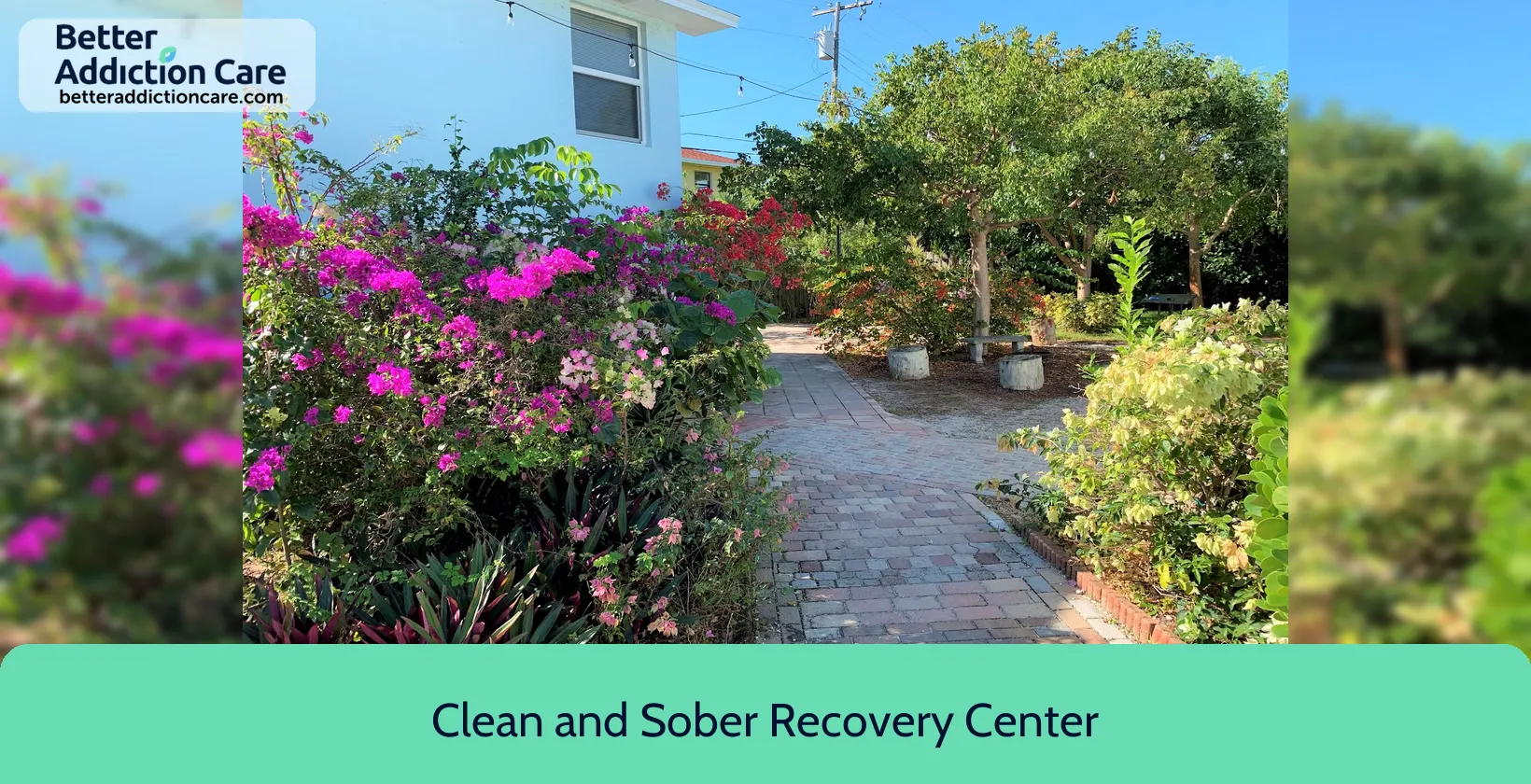
7.42
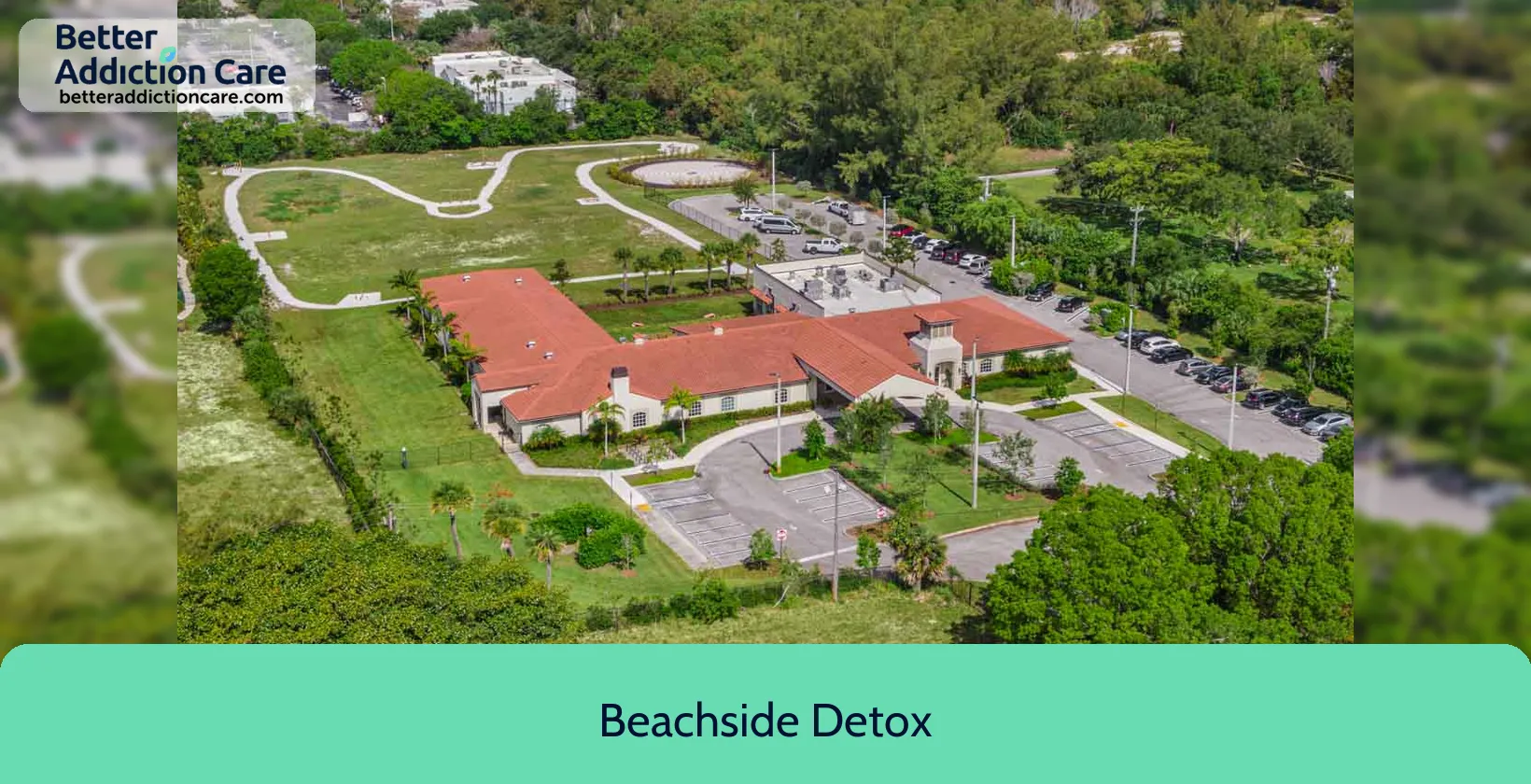
7.32
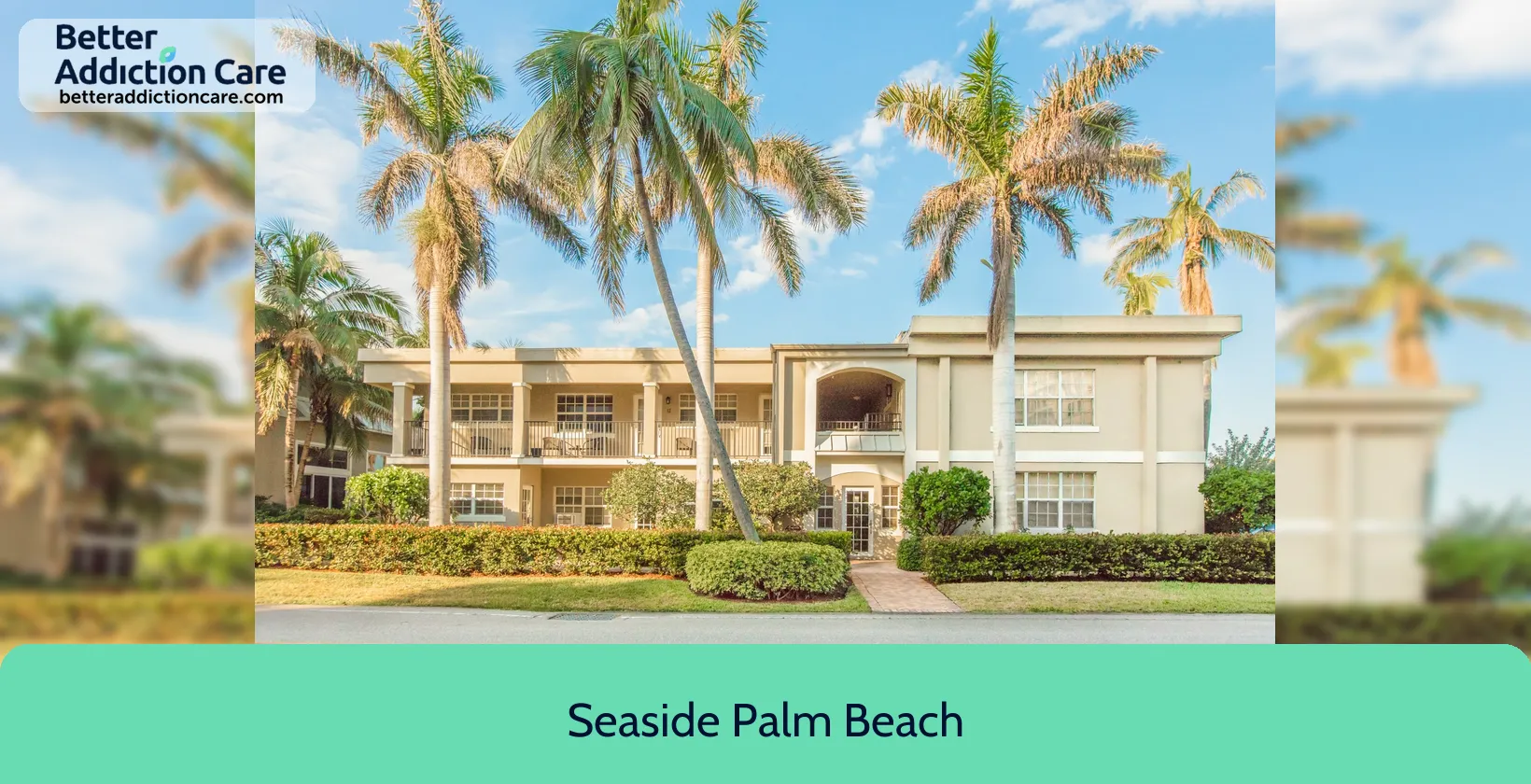
7.51
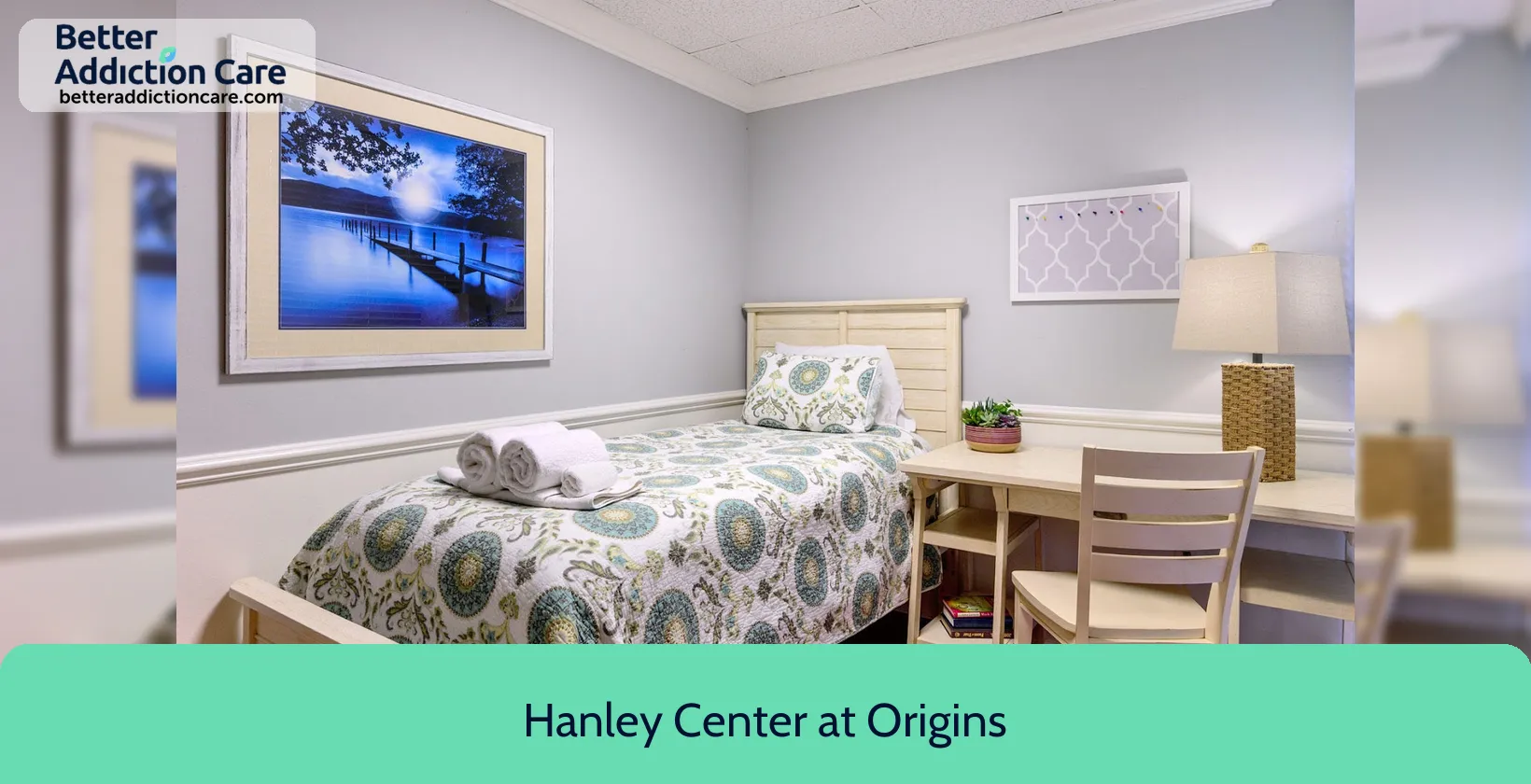
7.26
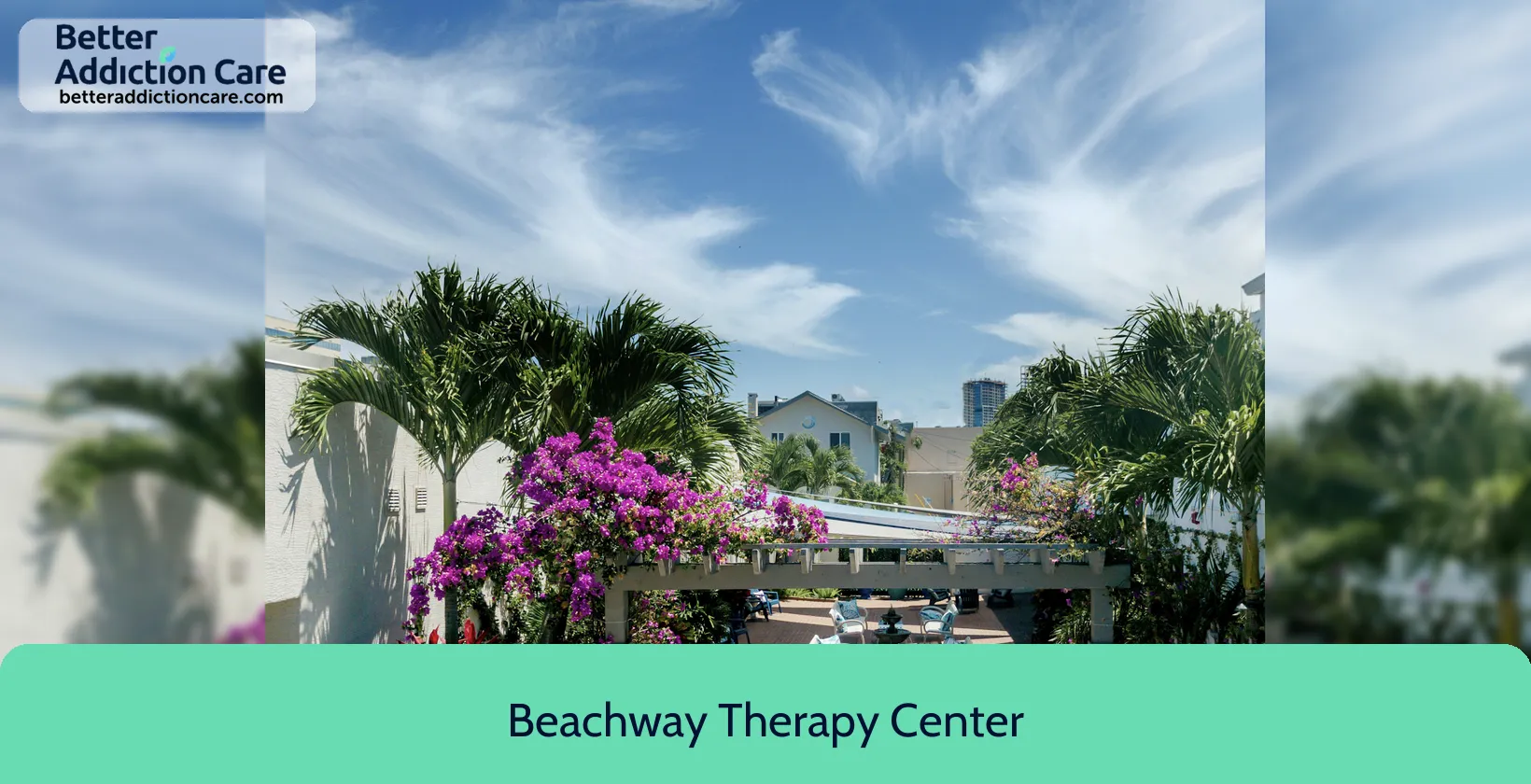
7.63
DISCLAIMER: The facility name, logo and brand are the property and registered trademarks of Beachway Therapy Center, and are being used for identification and informational purposes only. Use of these names, logos and brands shall not imply endorsement. BetterAddictionCare.com is not affiliated with or sponsored by Beachway Therapy Center.
